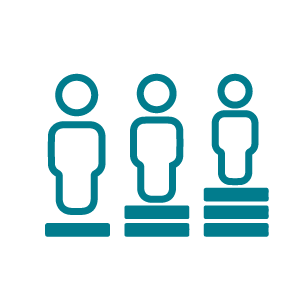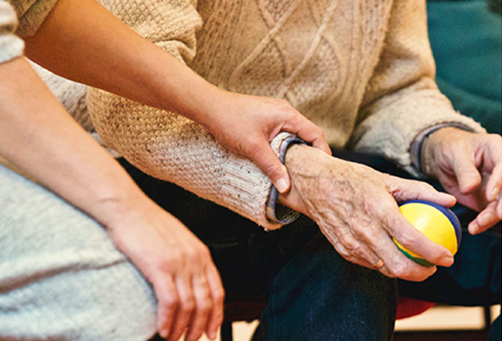



Programme Scope
Since 2020, the programme has supported the UKOTs to address the health inequities faced by vulnerable people who end up in the criminal justice system by providing public health technical assistance to ensure “no-one is left behind”. This activity contributes to stronger public health systems in relation to compliance with the International Health Regulations (IHR), reduces the burden of non-communicable diseases and promotes safer and fairer communities in the UKOTs.
Programme activity is guided by the following principles and values:
-
People in prison should have equal access to health care, regardless of their legal situation.
-
Good prison health is good public health.
-
The health and well-being of people in prison is a “whole-of-government responsibility”.
-
Improving health for people in prison is part of a rehabilitative approach in prisons
Workstream Focus
-
Improve the evidence base on the health needs of people in prison in the UKOTs to inform healthcare service prioritisation, planning, delivery and evaluation
-
Develop appropriate guidance, standards and interventions in line with international standards in prison health
-
Build capacity and support professional development for people working in prison health to ensure good practice and workforce planning
Example Projects
-
Development of the UKOTs Prison Health Needs Assessment Toolkit (available below under Key Resources)
-
Health needs assessments conducted in prisons in Gibraltar, Anguilla, Sovereign Base Areas, Bermuda and the British Virgin Islands using quantitative and qualitative methods and including the view of people incarcerated in prison
-
Technical assistance with planning and responding to communicable disease outbreaks in prisons
-
Establishing the UKOTs Prison Health Network for collaboration and co-ordination of activities across UKOTs for staff working in prisons
Networks
This network is for people who work in prison health, whether under prison services or as a health professional. The Network aims to share good practice in prison health across the UKOTs and internationally, collaborate and support problem solving for prison health in the UKOTs, enable opportunities for professional development for people working on prison health in the UKOTs and provide a forum for collective engagement with other fora and agencies (e.g. Health Education England, the Royal College of General Practitioners, Royal College of Nursing, academic researchers).
The Network meets every 3 months, using the MS Teams platform with secretariat and chairing by UKHSA. For more information or to join the UKOTs Prison Health Network please email UKOTs.Programme@ukhsa.gov.uk
Training Opportunities
-
National Commission on Correctional Health Care (NCCHC): The NCCHC offers educational opportunities for healthcare cadres, including certification and accreditation. NCCHC - National Commission on Correctional Health Care
-
The Royal College of General Practitioners (RCGP): The RCGP has resources, eLearning, and training materials on their website. You will need to register to access them. https://elearning.rcgp.org.uk/course/view.php?id=561#section-0
-
Prison Health: UK Health Security Agency course on Prison Health: Vaccinations for People Working and Living in Prisons (Non-Vaccine Trained Staff). Vaccination in Prisons for Non-Vaccine Trained Staff - Online Course FutureLearn and Prison Health: Vaccinations for People Working and Living in Prisons (Vaccine Trained Staff) https://www.futurelearn.com/courses/prison-health-vaccinations-for-people-working-and-living-in-prisons
-
University of Leeds course: Incarceration: Are Prisons a Suitable Punishment? https://www.futurelearn.com/courses/incarceration-prisons-suitable-punishment Explore life inside UK prisons. Learn whether this type of punishment reduces crime and if rehabilitation can prevent reoffending.
-
Prison Health: Managing Outbreaks of Tuberculosis in Prisons https://www.futurelearn.com/courses/tb-in-a-prison-setting UK Health Security Agency. Learn about the importance of addressing tuberculosis in prisons and the considerations for managing an outbreak in this setting.
- WHO/Yale University/UKHSA free courses on management of non-communicable diseases and infectious diseases in prisons and places of detention. Please contact Filipa Azevedo at WHO Europe on azevedof@who.int to register for these free courses.
Funding Opportunities
For research opportunities and collaboration with international partners, please see The Global Health Network community of practice called the Worldwide Prison Health Research and Engagement Network (www.wephren.org).
WEPHREN has a whole host of information related to prison health that you might find useful, so please do go and visit this community of practice on The Global Health Network.
Key Resources
-
UN Standard Minimum Rules for the Treatment of Prisoners (the Nelson Mandela Rules, 2015) https://www.unodc.org/documents/justice-and-prison-reform/Nelson_Mandela_Rules-E-ebook.pdf
-
WHO Organizational models of prison health: considerations for better governance (2020) https://apps.who.int/iris/handle/10665/336214
-
WHO framework for assessment of prison health system performance (2021) https://www.who.int/europe/publications/i/item/9789289055482#:~:text=The%20WHO%20Prison%20Health%20Framework%20will%20improve%20assessment%20of%20prison,for%20people%20living%20in%20prison
-
WHO Prisons and Health Handbook (2014). Prisons and health (who.int)
-
Prison Medicine and Health, Oxford Specialist Handbook (Oxford, 2023). Prison Medicine and Health | Oxford Academic (oup.com)
-
WHO Prevention and control of COVID-19 in prisons and other places of detention guidance (2020) https://www.who.int/europe/publications/i/item/WHO-EURO-2021-1405-41155-57257
-
WHO Addressing the noncommunicable disease (NCD) burden in prisons in the WHO European Region: interventions and policy options (2022) https://apps.who.int/iris/handle/10665/352257?search-result=true&query=prisons+covid+compendium&scope=&rpp=10&sort_by=score&order=desc&page=2
-
“Leaving no one behind in prison: Improving the health of people in prison as a key contributor to meeting the Sustainable Development Goals 2030”. BMJ Global Health 2021;6:e004252. Ismail, N., Plugge, E., Lazaris, A., O’Moore, E. and Stürup-Toft, S. https://gh.bmj.com/content/6/3/e004252
National Institute for Health and Care Excellence (UK)
- Physical health Overview | Physical health of people in prison | Guidance | NICE This guidance includes templates and guidance on reception health assessments for people coming into prison
- Mental health Overview | Mental health of adults in contact with the criminal justice system | Quality standards | NICE
National Health Service (UK)
The following links take you to the primary care service specifications for healthcare in English prisons, giving detail of what is provided and how quality assurance is monitored.
- Primary care services
- Substance misuse services
- Dental services
- Mental health services
- Care of women who are pregnant and post-natal in detained settings service specification
UKOTs Prison Health Needs Assessment Toolkit
The UKOTs PrisonHealth Needs Assessment Toolkit is intended for people and organisations who want to carry out a comprehensive assessment of the health system and health-related needs in a prison system. This is a practical guide divided into nine chapters including a set of tools (interview guides, checklists, and questionnaire) available in the Appendix and Kobo Tookbox .
- UKOTs Prison Health Needs Assessment Toolkit
- UKOTs Prison Health Needs Assessment Toolkit – Appendix
This document contains the four surveys and questionnaires used in the UKOTs Prison Health Needs Assessment.
- Prison Health Workers
- People in Prison (PIP) Short Survey
- People in Prison (PIP) Interview Questionnaire
- Corporate and Healthcare Stakeholders Interview Questionnaire
3. UKOTs Prison Health Needs Assessment Toolkit – Kobo Toolbox
The four surveys and questionnaires found in the UKOTs Prison Health Needs Assessment Toolkit – Appendix can be accessed online in the Kobo Toolbox, which allows you to update the surveys, so they are relevant for your prison setting. Data can then be uploaded and analysed electronically. The Kobo Toolbox can also be used offline whilst working in the prison and uploaded when back online.
To edit and create your own versions of the surveys and questionnaires, you need to create a Kobo Account and then use the following link to access the Toolkit: UK Overseas Territories Prison Health Needs Assessment Toolkit | KoboToolbox.
For more information on Kobo Toolbox, please see: Help | KoboToolbox
For issues related to the UKOTs Prison Health Needs Assessment Toolkit, please contact: UKOTs.Programme@ukhsa.gov.uk
Recent Events
International Webinar, Outbreak Management in Secure Settings, 9th December 2024CLICK THE VIDEO TO BEGIN WATCHING OR ACCESS THE RECORDING HERE The Health and Justice team at UKHSA ran a webinar to support the publication of the Multi-agency plan for incidents and outbreaks of communicable diseases in secure settings in England guidance (Management of incidents and outbreaks of communicable disease in secure settings. - GOV.UK (www.gov.uk)). Moderated by Sunita Sturup-Toft, Consultant in Global Public Health in the UKOTs and Prison Health Lead, this highlights UKHSA aims and the UKOT programme’s objectives around strengthening UKOTs abilities to respond to health threats in vulnerable populations. The webinar featured a variery of speakers from Australia, France, England, and Bermuda, who shared their experiences and case studies on managing outbreaks in prisons within their respective countries. The webinar provided valuable insights to enchance outbreak preparendess and response in secure settings. The slides presented can be accessed here. This webinar is accredited by the Faculty of Public Health. |